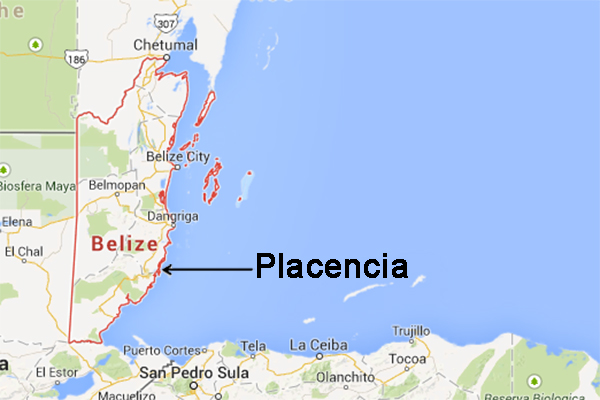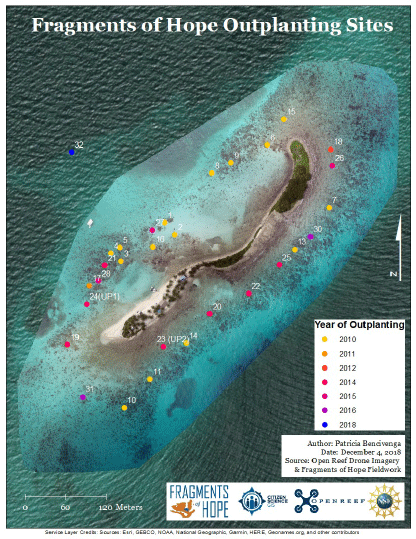By Estenia Ortiz Carabantes
On January 28th 2019, the STRONG Coasts team kicked-off the new year with an informative and insightful talk by Dr. Maya Trotz on her recent trip to Belize. The previous week, Dr. Trotz attended Fragments of Hope’s 5th annual Reef Replenishment Methods training workshop designed for coral restoration efforts in Placencia, Belize. Fragments of Hope (FoH) is located in Placencia, Belize and is a non-profit community-based organization focused on restoring coral reefs and sustainably managing associated habitats such as mangroves ecosystems. Many of the STRONG Coast mentors conduct research in Belize and their interests to support coral restoration efforts are growing. In this talk, geared to inspire innovation with STRONG Coast researchers, Dr. Trotz imparted powerful wisdom about the benefits of collaborating with Belizean communities.


Fragments of Hope’s slogan is “more corals=more fish.” Based on their experience to date, however, more appropriate is the expansion to “more crab, more biodiversity, more sustainable livelihoods, more coastal protection, and more human connections.” The workshop kicked off with a 2 hour presentation on FoH done by Executive Director, Lisa Carne, scaling up coral restoration by Plant a Million Corals Co-Founder, Dr. David Vaughan, crabs as herbivorous species for algae control on coral reefs by Dr. Jason Spadaro from Old Dominion University, and the life cycle of the spiny lobster by Dr. Mark Butler also from Old Dominion University (see recording here).
Dr. Trotz thinks that the reef restoration sites and initiatives serve as ideal places for convergence research as saving coral reefs are a grand global challenge, multiple disciplines and people are needed to address this complex system, and there is active community engagement in all aspects of restoration efforts, either directly or indirectly. FoH invited Drs. Spadaro and Butler to explore the potential for crab mariculture and their integration with coral reefs in Belize. Based on Dr. Spadaro’s graduate research, we learned that this symbiotic relationship could increase reef biodiversity while reducing algae growth on reefs. While the group was also interested in crabs for food, Dr. Spadaro mentioned that smaller crabs used to clean aquariums might be a greater economic earner than those that might be eaten. Of course, this is just one example of countless other valuable ecosystem services like medicine, tourism, and reducing storm and wave energy, that coral reefs provide.
Land based pollution from stormwater runoff and wastewater contamination pose threats to these delicately balanced ecosystems as well as to human health. A January 2019 article by researchers associated with Strong Coasts, Wastewater technopolitics on the southern coast of Belize, highlights interest of Placencia community members in switching from decentralized wastewater treatment systems like septic, to a more centralized system. In creating more sustainable livelihoods, proper resource management and efficient systems are needed. From an energy perspective, energy inputs are needed for processing crabs, transporting them, along with associated fuel costs. These are just some examples of potential collaborations or contexts for us to explore with the community in Placencia, Belize to restore these treasured ecosystems.
One item that resonated with me was the importance of doing research internationally. Not only are these reefs essential to Belizeans’ way of life, but they also strongly impact other countries around the world. For example, based on Dr. Butler’s work, Florida’s spiny lobsters actually are born in just a few places, Belize being one of them. Thus, ensuring their spawning habitats are safe influences how many will supply local markets in Belize and how many will make their way north to places like Florida where they are one of the largest valued agricultural products. Environmental issues know no bounds or borders; they are as interconnected, multifaceted, and deep as the oceans we hope to continue exploring as STRONG Coasts researchers.


Comments are closed.